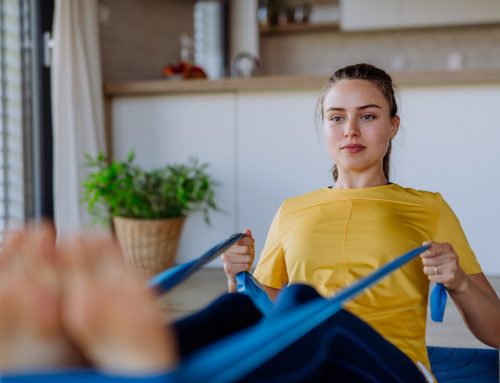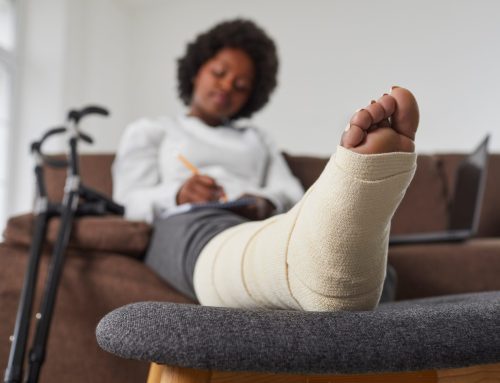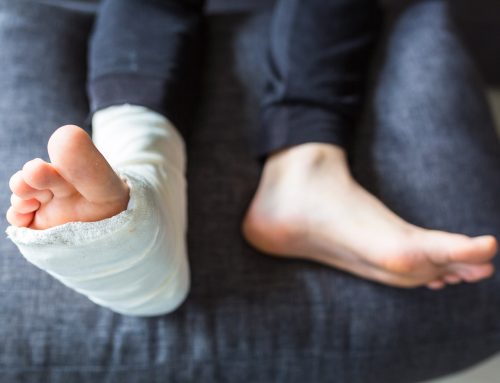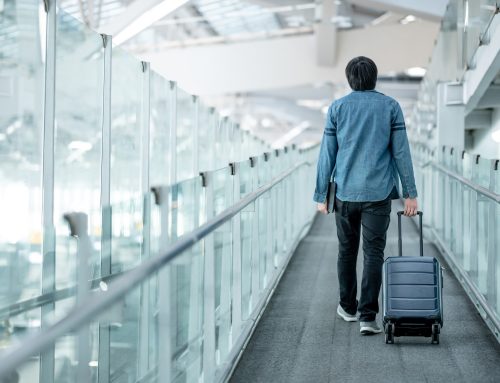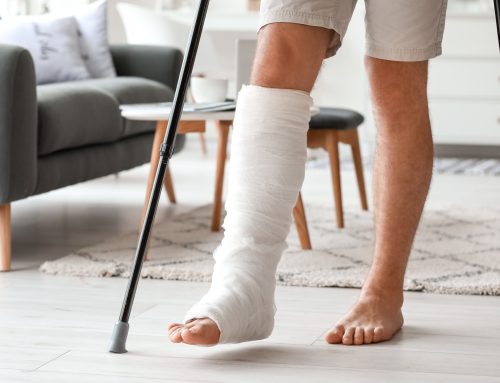Looking at a team of cyclists, you’ll notice one thing in common. They all seem relatively healthy. They’re typically lean, have incredible endurance, and take their health seriously. Cycling is without a doubt one of the top workouts for improving long-term health. Numerous studies have shown that cyclists who engage in intensive training can expect to reap many health benefits compared to their inactive peers. Some of these benefits include:
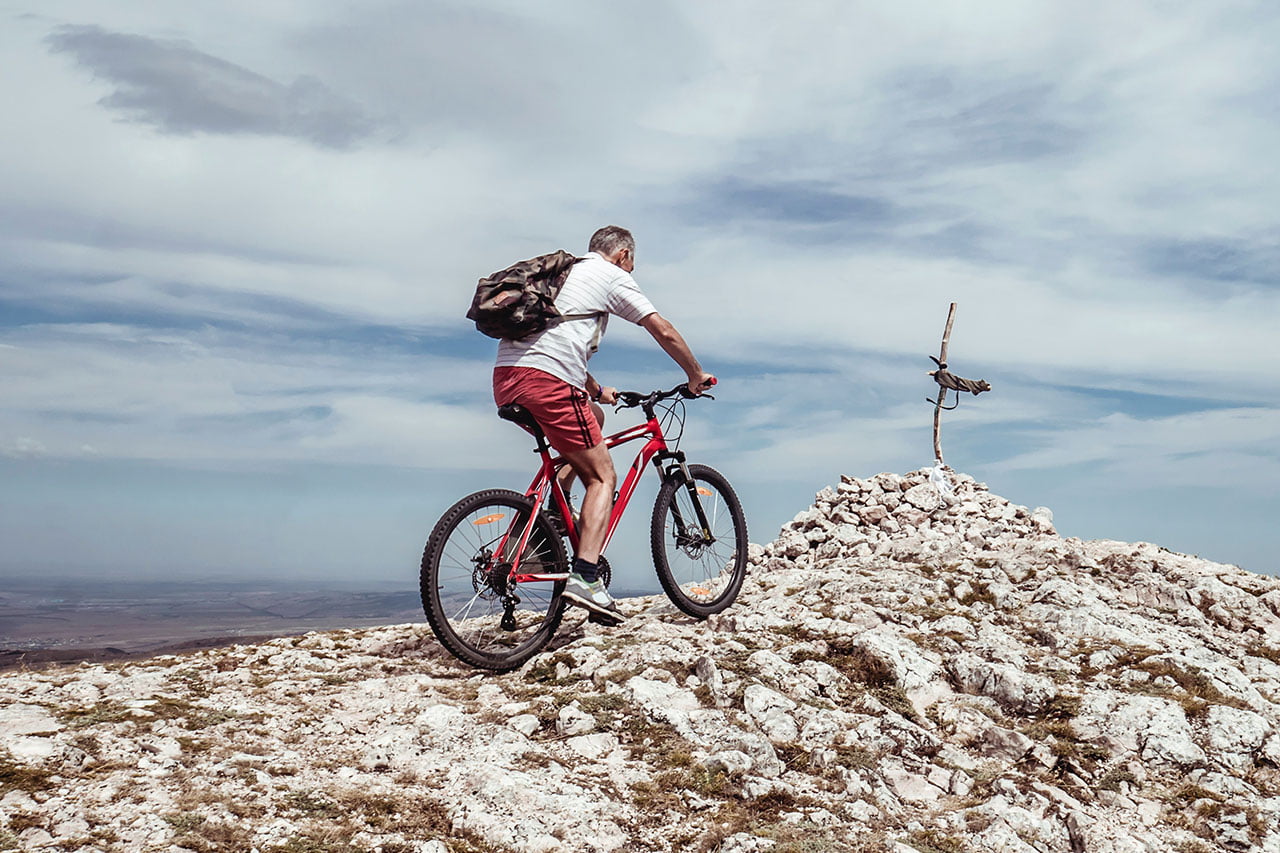
- Reduced blood pressure
- Better cholesterol readings
- Overall reduction in body fat
- Reduced risk of coronary heart disease
All these benefits add up to a better quality of life – unless your bones aren’t strong enough to support you. Dexa scan reports from numerous studies have alarming results that serious cyclists should be aware of. One study even found elite cyclists from the Tour de France had 17% less bone density than non-cycling peers. Read on to learn more about the effects of cycling and bone health.
Effects of Cycling on Bone Health
Bone health, or increasing bone mineral density (BMD), is one area where cycling may not provide health advantages. Low levels of BMD are linked to an increased risk of osteoporosis. With over 2 million Canadians affected by this life-altering disease, it’s worth noticing.
The fact that cycling is a non-weight-bearing exercise is the primary cause of poor bone density in cyclists. Due to the amount of time cyclists spend training and riding, high-level cycling has been found to have unfortunate impacts on bone strength.
Due to the smooth spinning nature of the pedalling movement and the fact that riders are supported by their saddle, there is almost no bone stress associated with gravity contact (unlike the shock absorbed by your legs during running or field sports). You sit for long periods with no compression stresses on your spine and pelvis. Even though you feel like you’re cycling hard at times, the forces you’re exerting on the pedals aren’t dispersed in a way that places considerable pressure on your bones, which is necessary for bone formation. The question of cycling and bone health-inspired several studies examining BMD in bikers, with worrisome results.
For example, French researchers found that road cyclists had lower levels of BMD than healthy non-cycling controls, even though they consumed more calcium from their diets (which we know is essential for bone health). They concluded this must result from no additional loading workouts such as running or weight training. As a result, health specialists now urge riders to include these types of loading exercises in their riding routine. Is this, however, plausible? Can cyclists safeguard their bone health by pounding the pavement or going to the gym?
In a more recent report, Norweigan scientists beg to differ. They measured both cyclists and runners to get to the bottom of it. According to the study, they pointed out that elite cyclists had a significant frequency of low BMD. Despite engaging in weight-bearing activity, elite distance runners have been shown to have low BMD. Poor body mass and low energy availability (i.e., when total calorie intake is just enough to maintain training and critical metabolic processes in the body) are two factors that have been associated with low BMD in both distance runners and cyclists.
However, this study cannot explain why riders’ bones are so thin. They may have been eating too little or sweating too much for optimal bone health. In other research, both low-calorie intake and high rates of calcium loss through sweating have been linked to bone loss. This mystery has yet to be fully solved, and research is still underway. It boils down to too many variables and not enough data.
We all want strong bones that don’t break easily, especially as we get older. This is especially true for bikers. Let’s face it. You’re bound to crash or fall at some point during your cycling career. If you do fall to the ground, your best line of defence against a fracture is how you maintain and stimulate bone strength.
How Cyclists Can Improve Their Dexa Scan Results
This article isn’t meant to worry the casual biker that enjoys their Sunday ride. This report studied cyclists who regularly trained 2-3 hours per day. Cyclists who do more severe training volumes should be mindful of the concerns that intense and rigorous training poses to bone health. This holds true even if they include some weight-bearing activities like running and weight training in their training regimen. Here are some tips for reducing further bone loss:
- Include weight-bearing exercises in your regime all year long, not only during the off-season.
- Don’t restrict calories or eat a low-calorie diet to reduce weight or increase your power-to-weight ratio. It’s crucial to maintain your energy to optimise bone strength.
- Cycling enthusiasts should pay special attention to calcium and vitamin D consumption.If your body isn’t being fed these nutrients, they’ll begin to steal calcium from your perfectly healthy bones to support your energy. You’ll want to protect your bones from calcium depletion by getting between 1,000-1,200mg of calcium per day and 400-800 IU of vitamin D. Remember, vitamin D helps you soak up the calcium!
- Concerned bikers may want to receive a current assessment of their BMD by getting a Dexa scan (which is a relatively easy and non-invasive procedure). Your results can be used to guide future training and diet choices.
The best way to protect your bones is through proactive action. By strengthening your bones, you’ll decrease your risk of fractures that will put a halt to everyday living. But sometimes breaks happen regardless of your routine. You can wait it out or experience faster fracture healing with a proven, safe, and non-invasive treatment when this happens. Learn more about the options that will get you back to pre-accident living ASAP.
Do you enjoy cycling? Did you learn something surprising in this article? How do you train to keep your bones healthy? Share your story with our readers in the section below so they can feel more confident about their health.

